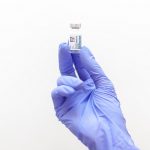COVID-19 vaccination and cancer: What you need to know
If I have cancer now or had it in the past, should I get a COVID-19 vaccine?
Yes. The Centers for Disease Control (CDC) and...
COVID vaccination could provide long-term protection against severe disease, death
In a recent study published in the New England Journal of Medicine, researchers found vaccination offers long-lasting protection from the worst outcomes of COVID-19.
The study...
COVID-19 household transmission is high, and children play a big role
Scientists from the University of Ottawa found that SARS-CoV-2 (COVID-19) spreads extensively in households, with children being a significant source of that spread.
Approximately 50%...
COVID-19 therapy combo can work better to fight infections
Scientists from Charité-Universitätsmedizin Berlin found that COVID-19 therapies are better in combination than alone.
They tested the mechanisms of action of antiviral and anti-inflammatory drugs.
They...
These diabetes, high blood pressure drug may reduce COVID-19 death risk
In a study published in The BMJ, researchers found a COVID-19 survival benefit linked to the use of an angiotensin-converting enzyme inhibitor (ACE-I), an angiotensin...
Sitting during COVID-19 pandemic linked to depression, study finds
Scientists from Iowa State University found that people who spent more time sitting during the COVID-19 pandemic were likely to have higher depression symptoms.
The...
Scientists develop rapid, reliable vitamin D test to fight against COVID
Scientists from McMaster have helped develop a more efficient way to screen for vitamin D deficiency that could become a tool in the fight...
You may have a higher risk of this eye disease after COVID-19
Scientists from the Southern California Permanente Medical Group found that the risk for retinal vein occlusion (RVO) may be increased in the six months...
Third mRNA COVID-19 vaccine dose is safe, study finds
Scientists from nference and Mayo Clinic found that the third dose of the COVID-19 mRNA vaccine is safe.
The research is published in JAMA Network...
Future of COVID-19 vaccines brings high hopes, familiar obstacles
Looking back on a year since most people in the United States became eligible for a COVID-19 vaccine, medical experts can celebrate a technological...










